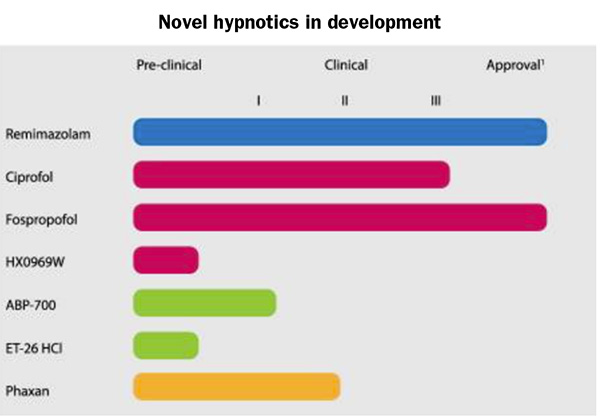Kidney transplant performed on awake patient

Editor's Note In a first for Northwestern Medicine, surgeons performed a kidney transplant on an awake patient, CBS News reported June 24. John Nicholas, 28, of Chicago, experienced no pain during the May 24 procedure, in which he received an organ from a childhood friend. He was discharged the next…
Two-question survey could help improve pain management, reduce opioid use

Editor's Note A simple, two-question survey could help identify patients most likely to develop chronic pain during recovery from surgery or injury and direct them toward proactive, holistic services that reduce reliance on opioids. NEJM Catalyst published the findings on March 20. Conducted by a research team from Duke University,…
Procedural sedation analgesia considerations for ASC leaders

The promise of quicker recovery and fewer complications from sedation, anesthesia, and pain management have drawn clinicians and patients alike to procedures performed in ambulatory surgery centers (ASCs) and other outpatient settings. However, sedation, anesthesia, and analgesia add their own risks to those of the procedure itself. Understanding the latest…
New Joint Commission requirements for total hip, knee replacements focus on opioids, diabetes

Editor's Note The Joint Commission has released revised requirements for the advanced disease-specific care certification for total hip and total knee replacement (THKR). The requirements, which are designed to align with the updated AAOS clinical practice guidelines, go into effect July 1, 2024 and focus largely on addressing opioids and…
Anti-inflammatory drug reduces opioid requests after surgery

Editor's Note: An FDA-approved anti-inflammatory drug used to treat poisoning and liver damage could help reduce patient requests for opioids after surgery, according to findings published October 25 in the Future Medicine journal Pain Management. The study involved 50 patients who were given either a set dose of the anti-inflammatory…
Postoperative opioid prescriptions falling, but more improvement needed
Editor's Note A new study finds that while opioid prescriptions for postoperative pain relief have continued to decline, that downward trend has slowed since 2020, indicating the need for continued work to right-size opioid prescriptions for surgery patients. The findings were published by JAMA Network on December 7. Researchers looking…
Researchers look for genetic drivers of postop pain
Editor's Note A new study that attempted to find genetic drivers of postoperative pain uncovered only two associated alleles, suggesting wider examination is needed. The findings were published in the American Society of Anesthesiologists journal Anesthesiology December 2023 issue. The researchers looked at 163 studies and evaluated 129 genes and…
Limiting opioid medication did not negatively impact patients post-surgery
Editor's Note A 5-day limit on opioid pain medication prescriptions in Michigan did not negatively impact patient-reported pain levels or satisfaction, JAMA Network October 13 reports. The study, titled "Changes in surgical opioid prescribing and patient-reported outcomes after implementation of an insurer opioid prescribing limit," was published by JAMA Health…
Study shows serious downside, risks to postop opioid prescription at discharge
Editor's Note This cohort study, published by the British Journal of Anesthesia in September 2023, finds that surgical patients who are discharged with prescribed opioids have higher risks of hospital readmission and mortality. The study looked at data from a territory-wide retrospective cohort of patients in Hong Kong who underwent…
ACS addresses opioid prescription misuse with new QI project
Editor's Note The American College of Surgeons (ACS), on September 12, announced a new quality improvement (QI) project that will evaluate the most effective ways to help patients safely manage postoperative pain and reduce the risk of opioid dependence. The project will be conducted in collaboration with Health Care Service…

 Free Daily News
Free Daily News